#Anglo Irish Actors
Text

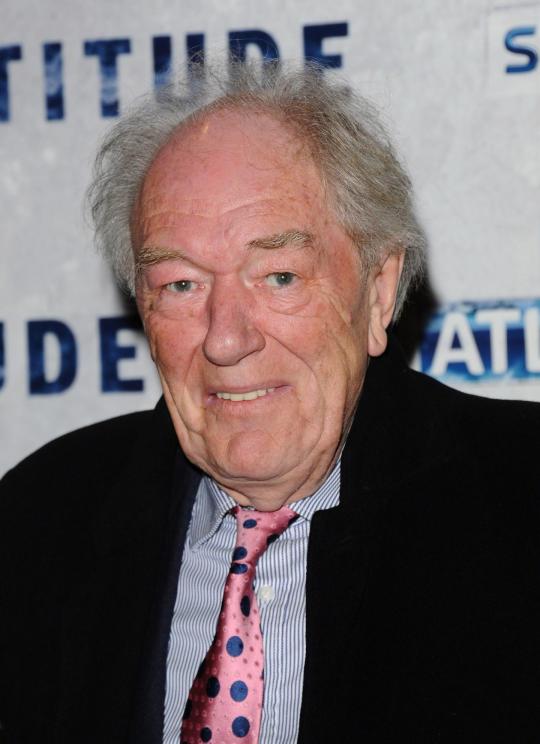
SIR MICHAEL GAMBON (1940-Died September 27th 2023,at 82,Pneumonia).Anglo-Irish actor forever remembered by millions of Harry Potter fans as Professor Albus Dumbledore,in the last 6 films of the Harry Potter film franchise.
Gambon started his acting career with Laurence Olivier as one of the original members of the Royal National Theatre. Over his six-decade-long career, he received three Olivier Awards, two Screen Actors Guild Awards, and four BAFTA Awards. In 1998, he was knighted by Queen Elizabeth II for services to drama.
Gambon appeared in many productions of works by William Shakespeare such as Othello, Hamlet, Macbeth and Coriolanus. Gambon was nominated for thirteen Olivier Awards, winning three times for A Chorus of Disapproval (1985), A View from the Bridge (1987), and Man of the Moment (1990). In 1997, Gambon made his Broadway debut in David Hare's Skylight, earning a Tony Award for Best Actor in a Play nomination.
Gambon made his film debut in Othello (1965). Other notable films include The Cook, the Thief, His Wife & Her Lover (1989), The Wings of the Dove (1997), The Insider (1999), Gosford Park (2001), Amazing Grace (2006), The King's Speech (2010), Quartet (2012), and Victoria & Abdul (2017). Gambon also appeared in the Wes Anderson films The Life Aquatic with Steve Zissou (2004), and Fantastic Mr. Fox (2009). Gambon enhanced his stardom through his role of Albus Dumbledore in the Harry Potter film series from 2004 to 2011, replacing Richard Harris following his death in 2002.
For his work on television, he received four BAFTA Awards for The Singing Detective (1986), Wives and Daughters (1999), Longitude (2000), and Perfect Strangers (2001). He also received two Primetime Emmy Award nominations for Path to War (2002) and Emma (2009). Other notable projects include Cranford (2007) and The Casual Vacancy (2015). In 2017, he received the Irish Film & Television Academy Lifetime Achievement Award. In 2020, he was listed at No. 27 on The Irish Times' list of Ireland's greatest film actors.Michael Gambon - Wikipedia
#Sir Michael Gambon#Irish Actors#Anglo Irish Actors#British Actors#Actors#Professor Dumbledore#Albus Dumbledore#Harry Potter#Harry Potter Films#The Singing Detective#The Cook The Thief His Wife and Her Lover#Notable Deaths in September 2023#Notable Deaths in 2023
25 notes
·
View notes
Text
I like it here on tumblr. Videos don’t blow up in the same way so I don’t have to deal with as many people with no reading comprehension and an aching need to be Right.
Also, if I make a mistake which I did here, I can add context.
(The amount of shit I’m getting for having name from the Irish language is phenomenal. Also people telling no one cares. Yeah? That’s why 88.4K people liked it? Look, I thought it was getting 3000 at most. It was a little hokey joke about random things I’ve been renamed. Fuck off.)
Edit: Ok. Tiktok. Why do you keep taking my goddamn subtitles off me??
#deaf#tiktok#funny#video#queer#actor#Irish#Irish names#like can Anglo people be Normal about them?#oh it looks like you threw letters at a wall#nah it’s just a different alphabet you uneducated wet bag of rice
161 notes
·
View notes
Note
You know they've rumoured for years to either be remaking Columbo or shooting a movie. If they did, who would you like to see in the lead? I remember reading Mark Ruffalo was linked & yknow what I ain't mad.
as an actor and writer myself, i don't make a habit of inextricably tying actors to roles. i believe media is meant to be interpreted and reinterpreted freely.
but peter falk, man...peter falk was more than inextricable from columbo. he was columbo.
it's funny because the show's creators, levinson & link, had a totally different vision going in their heads during the casting process--they saw a much older, balding irish/anglo type. for reference, burt freed first played the character in a brief TV appearance; thomas mitchell first played him onstage; bing crosby was one of the first choices for TV.
then peter falk frantically waltzed in (quote: "i'd kill to play that cop") with his overpowering, mensch-y charm and sold them on columbo as the whimsical, dark-featured little guy we've come to know and love. falk's columbo was such an earth-shattering hit that NBC was practically on their knees begging him to sign a serial contract; when he did, he swept the nation. i don't have exact figures handy, but he was earning hand over fucking fist playing him, and NBC spent the better part of a decade kowtowing to his sometimes famously insane demands just to keep the hits coming. needless to say, despite the insanity, peter falk's dedication to his craft and the character of columbo was second to none.
on a decidedly darker note, i confess that i often think of it this way: when falk had alzheimer's in his twilight years, someone leaked from court documents that his doctor noted he could "no longer remember playing columbo". you can still find those news articles everywhere online; it was so widely reported and discussed that it was effectively treated as a death announcement. the public treated the "death" of peter falk's memory of columbo as effectively the death of both he and the character.
to me, it's pretty difficult to top that.
so yeah, frankly i'm just not interested whatsoever in seeing anybody else as columbo proper. if the character had to return, i'd rather see something actually iterative like a prequel/origin story or something. i'm also sick of reboots in general so seeing inspirations from columbo in new media rather than directly revived is a much more inviting prospect for me.
speaking of which, take natasha lyonne in poker face (you knew i was gonna go there!). she's a huge peter falk/columbo fan herself and was widely rumored to play "female columbo" in a reboot, but she did the far more creative thing and teamed up with rian johnson to devise a character/show inspired by columbo but fresh and new, neither a reboot nor carbon copy. if only the rest of mainstream flim/tv these days could take note.
tl;dr i would like to see absolutely nobody in the lead of a columbo reboot except for a terrible PS2 graphics render of peter falk clipping through the floor
#columbo#plus ruffalo has sort of. aged out of columbo. imo imo imo#get a fresh face if you must!#mark ruffalo#natasha lyonne#poker face#ask
205 notes
·
View notes
Text
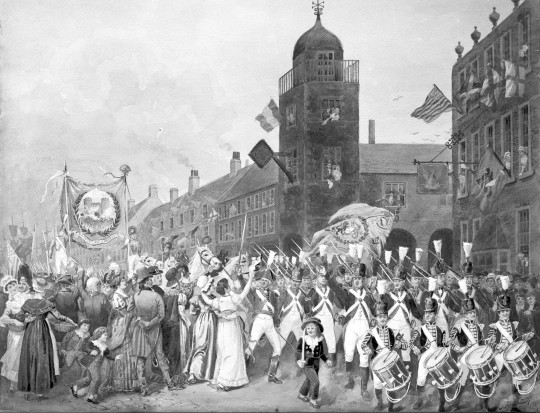
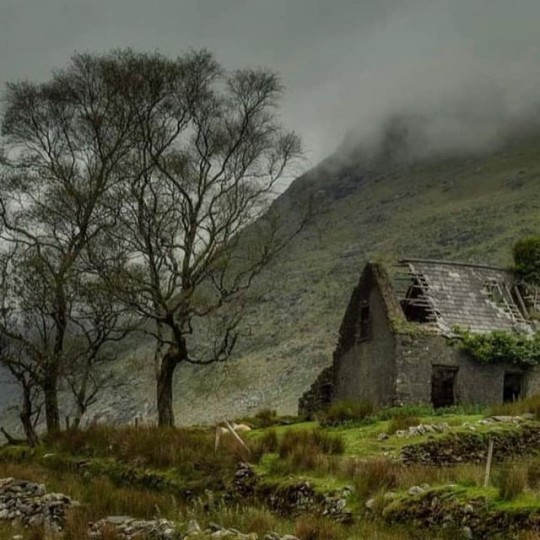
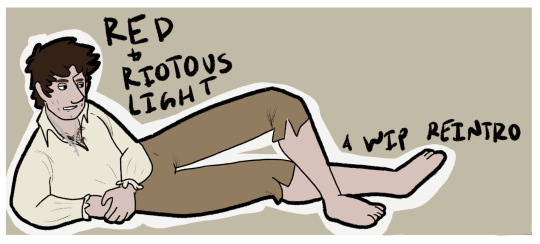
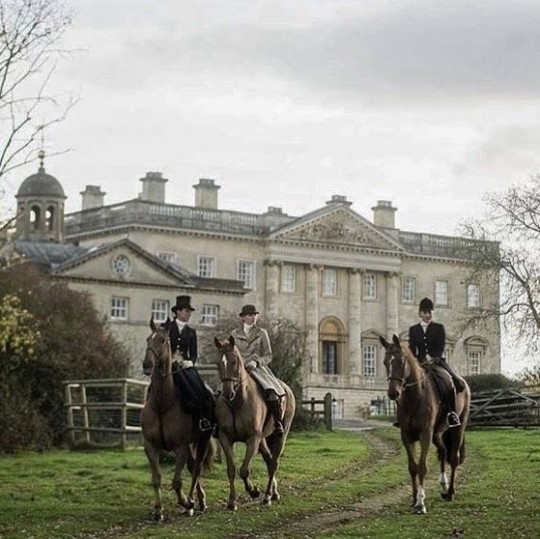
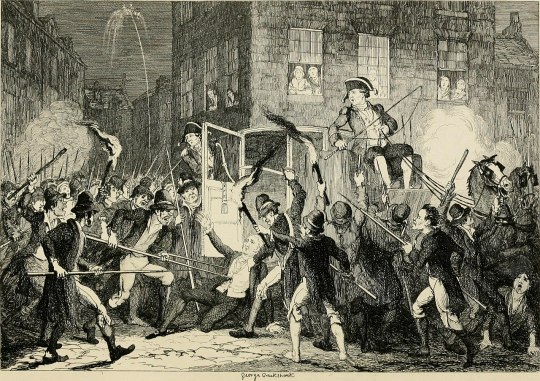
image in the middle my art, all others except for that of the belfast 14th july celebrations from pinterest
WIP Reintro: Red and Riotous Light
Status: seven morbillionth draft
Genre: historical fiction, gothic horror
Content warnings: gore, death, cannibalism, place & time typical bigotry, &c
The year is 1796 and the island of Ireland, once considered peaceable, is awash with sedition. In Belfast, the arrival of a mysterious Englishwoman whose defection to the French makes her a target of both curiosity and suspicion brings with her tidings of a prospective deal between a local United Irish cell and the French government: guns, and ammunition, sold at a premium price, delivered by a French ship. The only problem? The ship is arriving at the opposite side of the country, and these would-be insurgents need it where they are -- and the French said nothing about transport. Additionally, the committee seems to have had a suspicious number of brushes with authority lately. More than they used to. Hopefully someone isn't getting cold feet...
Meanwhile, in the isolated townland of Áth Síomóin, the arrival of a hapless new schoolmaster sparks the powder-keg the two sides of the area's sectarian divide have long been sitting on and leads, inadvertently, to the death of a Catholic of some consequence -- and, crucially, does not lead to the punishment of his killer. The resulting crackdown on Defender activity, facilitated by the arrival of another English visitor, is to be expected at first. However, as the situation deteriorates, it becomes clear that local agrarian resistance leaders have neither intent nor indeed means to capitulate, and all sides begin to adopt increasingly extreme measures in an attempt to win the seemingly endless feud. And there's also something off about some of the local children -- hearing voices, saying funny things. It can't be good for them, after all. All this bloodshed.
Ask to be +/- from the taglist + main characters under the cut
William Hughes Rearden - an extremely driven and neurotic member of the Belfast United Irishmen hellbent on getting French arms for his men. he/him
Lady Maria Whittaker - an English reformer who defected to the French; Rearden's close friend. Her mission is to arm the UI and she doesn't care what she has to do to accomplish it. she/her; first name pronounced "mariah"
Seamus "Seamy" Breen - a small, unhappy Irish Catholic boy who, after he witnesses the death of a schoolmate, develops the ability to speak to the dead. he/him; nickname pronounced "shaymie"
Eoin O'Donnell - a womanising Defender leader in Áth Síomóin who has decided that he will also be taking and using some of these French arms, actually. he/him; first name pronounced "owen"
Sarah Connolly - a nihilistic Catholic peasant woman trapped in an unhappy relationship with an abusive boyfriend, who knows much more than she lets on. she/her
Edward "Lazarus" McClure - the loyalist owner of a rural inn who has lately betrayed his principles for a Catholic boyfriend who he seems disturbingly devoted to. he/him
Elizabeth "Eliza" Durham - the heiress to the fortune of an Anglo-Irish landowning family who runs her family's estate like it's the navy and suffers little dissent. she/her
Anthony Franklin - an actor, committed abolitionist, philosophy enthusiast, and London Corresponding Society delegate originally from the West Indies. he/him
Charles Nathaniel Maurice Irving-Hamilton, Lord Drenning - a foppish English soldier brought over by Eliza to help quell agrarian disturbances. Really really bad at his job. he/him
Eleanor "Ellie" Gage - a waif of uncertain background who lives with the Presbyterian minister in a neighbouring townland and works unofficially for the local regiment. she/her
29 notes
·
View notes
Text
Incidentally, I've always wondered about Van Helsing's family's possible connection to Sweden. See, 'Helsing' is not a Dutch name per se-- Helsing or Hellsing is an archaic rendering of the name "Hälsinge", i.e. someone from Hälsingland, which is a historical province in central Sweden. As a sidenote, it's also where the movie Midsommar was set. Now, there's a crossover for you...
Anyway, I see two plausible options: Van Helsing's people were Swedes who immigrated to the Netherlands and used Van Helsing as a surname to denote where they came from as surnames became more mainstream for the lower classes, or they were originally Dutch who immigrated to Sweden for one reason or another, and were well-settled enough that it made sense to use 'Van Helsing' as a name when dealing with other Dutch people their given base of operations, but eventually returned to the Netherlands and by that point the name had just stuck.
Yes, I am aware that Stoker probably just picked something that 'sounded Dutch' to Anglo-Irish ears-- or, given Stoker's work with Shakespearean actor Henry Irving, could have been cribbed from the Danish castle Helsingør, which shows up in Hamlet (although there it's rendered as Elsinore). Now and then we just hear a collection of syllables that appeals to us. It's still fun to do the Watsonian thing from time to time, that's all.
Anyway, if you ever feel like writing about Viking vampire hunters,
(and indeed why wouldn't you feel like writing about Viking vampire hunters?), do keep Hälsingland in mind as a potential point of origin or setting.
192 notes
·
View notes
Text
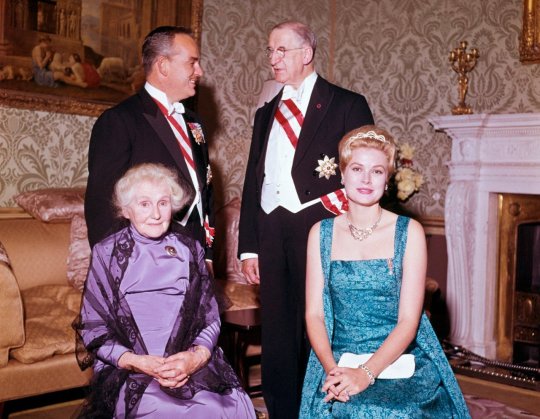
The Prince and Princess of Monaco with the President of Ireland Eamon de Valera and his wife Sinead in 1961. The couples visit marked Ireland's first ever state visit since the creation of the new state.
How Grace Kelly became an unlikely icon of Irish-American assimilation
The ascension of a Catholic Irish-American to princess paved the way for the Irish to be accepted as American ‘royalty’
1 Apr 2023, The Irish Times
A statue of Grace Kelly, the Hollywood actor who became a princess, was unveiled in Mayo recently near Drimurla, where her grandfather’s cottage still stands. This came a month after Trinity College Dublin added a bust of Abbey Theatre co-founder Lady Gregory to its Old Library. Although public women of Irish connection are finally being included in official memory and memorial, Grace Kelly’s significance to Ireland and Irish America generally remains neglected.
Kelly, awarded an Oscar for The Country Girl (1954), appeared in 11 films between 1951 and 1956. She received the title of Princess Grace of Monaco upon her marriage to Prince Rainier III of Monaco in April 1956. Grace was a cultivated woman whose deep and often publicly shared interest in Ireland and its culture led her widower to endow the Princess Grace Irish Library of Monaco in her honour. In her public life, she ably represented both her heritage and her adopted principality: Grace formally lunched with the Kennedys in May 1961, a month before making an impactful state visit to Ireland during which she called at the ancestral Kelly cottage in Drimurla.

Princess Grace of Monaco and US president John F Kennedy at the White House, 1961.
John Henry Kelly, born in Drimurla in the Famine year of 1847, left for Pennsylvania 20 years later. Grace was the granddaughter of John Henry and the daughter of the handsome and athletic John B Kelly, who earned his fortune during America’s 1920s building boom. Grace was raised in a large home in a residential Philadelphia neighbourhood on the Schuylkill river banks. This waterway divided the Irish “new money” from the “society” Anglo-Protestant elite on the western bank along the so-called Main Line. The Kelly home was a fine one, as I saw with my own eyes when I delivered a talk there in December. However, to “old money” Wasp Philadelphia, the fact that it had been newly built in the late 1920s with bricks from the family’s own firm was unpalatable. Altogether, in the highly socially and racially stratified city in which Grace was born, wealth and success were not enough for those of recent immigrant background to be fully accepted into its uppermost echelon.
In order to dilute the usual associations of an Irish Catholic background, movie studios created a slightly icy but elegant persona for Kelly when she was on the rise in the early 1950s. Nevertheless, the assumption that a Philadelphia Irish Catholic girl could not quite make the cut coloured coverage: in 1955, Time magazine suggested that although publicists tagged “Miss Kelly as ‘a Main Line debutante,’” she was “neither Main Line nor a debutante, but she is the next thing to both.”
Such subtly snooty comments melted away when Kelly’s engagement to Rainier was announced in January 1956.
Their wedding in Monaco cathedral three months later was one of the largest international media events of the 1950s. It was broadcast live on television by MGM, watched by 30 million people. It is not remarked upon today, but this unambiguously Catholic spectacular came only three years after the coronation of Queen Elizabeth II, also a momentous televisual event. For some of those of Irish nationalist persuasion in Ireland and the US, Kelly’s globally visible transformation to royalty was an Irish Catholic riposte to the crowning of the new British monarch at Westminster Abbey in 1953.
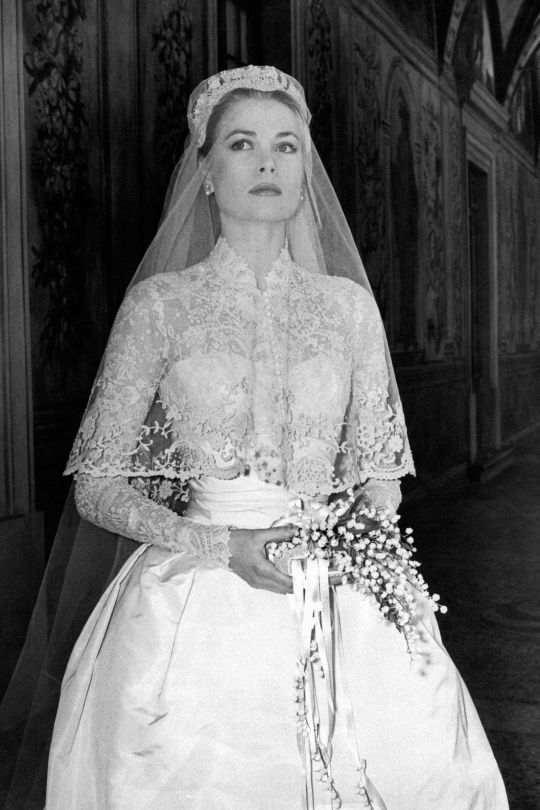
Grace Kelly, now the Princess of Monaco on her wedding day 1953.
The ascension of a Catholic Irish-American to the status of princess paved the way for the Irish to ascend to “American royalty”, so to speak: the first Catholic Irish president was elected only four years later. The Kennedy era tends to be the beginning point in assessments of the final full assimilation of the Irish in America, but it was Kelly who initiated the transformation.
The princess’s gorgeous white bridal gown also inspired women in her ancestral country. Caitriona Clear has noted that into the early 1950s, the wedding outfit of most Irish women was a formal day dress or suit and that the white dress and veil was worn mostly by brides from elite backgrounds. It seems that the widely disseminated image of the white bridal gown of a woman of modest Irish roots made such attire approachable for ordinary women in Ireland: by 1957 the colour of wedding dresses was so taken for granted that it went unmentioned in Irish newspaper accounts. Kelly’s donation of the gown to the renowned Philadelphia Museum of Art for its permanent collection soon after her wedding suggests the sudden confidence of the Catholic Irish in a city that had long socially excluded them.
In her role as princess, Kelly wielded immense soft power as the internationally known representative of a tiny principality long overshadowed by its powerful neighbour, France. Biographer Donald Spoto suggests that the global spotlight brought by Kelly transformed Monaco: it disarmed French attempts to assert control over the principality, revitalised its economy and, through the princess’s efforts, made it a hub for cultural events. Even Kelly’s final film, after a long hiatus, Rearranged (1982), a comedy short in which she plays herself, was a disguised promotion for her beloved Monaco Flower Show. Poignantly, Rearranged remains unreleased as it was unfinished at the time of the princess’s death in a car accident in 1982.
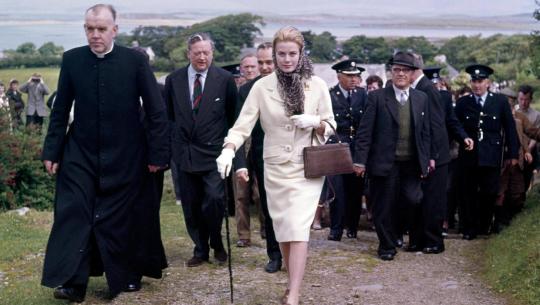
Princess Grace of Monaco with a priest and entourage climbing a hill to the Shrine of Our Lady at Croagh Patrick, Co Mayo, in 1961.
Kelly had purchased the ancestral Drimurla cottage and the surrounding small-holding in 1976, suggesting a deep reservoir of family feeling. If the princess always remembered Drimurla, then Drimurla returned the favour: residents sent a wreath of wildflowers picked in the fields around the ancestral Kelly home to Monaco for her funeral.
Mary M Burke is the author of Race, Politics and Irish America: A Gothic History (Oxford University Press), available in Hodges Figgis and online.
16 notes
·
View notes
Text
Some cultural elements I might add to a future Narnia adaptation:
Not sure what culture to base Archenland on but maybe cast them as people of color?
For that matter, cast actors of color as some of the indigenous Narnian characters, especially the more human-looking ones like nymphs and such.
Cast Pasifika actors as the Telmarines, since Lewis described them as descendants of pirates in the South Seas who married locals and found their way into Narnia. Perhaps clarify in this adaptation that the marriages were willing (which doesn't seem to have been the case in the novel), for example by changing the pirates to less violent sailors and establishing that this happened before Europe (and the US, and Japan) colonized the Pacific.
Calormen. Hoo boy. If I had to touch this, first I'd base them on, like, ancient Mesopotamia more than the Arabian Nights. Second I'd actually, you know, flesh out their culture and depict both Calormene and Narnian society with pros and cons, instead of the angle of "Narnia's proper medievalesque Christian values are better in every way than Calormen's Oriental Despotism™" that the books took.
Related to the above, possibly depict The Horse and His Boy and The Last Battle as in-universe anti-Calormene propaganda (not just to avoid the racism, but because The Last Battle is kind of a downer). Hell, I even remember The Silver Chair mentioning The Horse and His Boy as a story told at the giants' castle—over a thousand years after the events of THaHB, so some details may have changed in the retelling even if it was based on real events. Maybe Rabadash did invade Archenland, but the actual casus belli wasn't "swarthy foreign prince lusts after white woman," but (in keeping with the Mesopotamian angle I mentioned) "Archenland cancels shipment of subpar copper." Also Aravis and Lasaraleen were totally an item.
For that matter, diversify the human visitors from Britain? This could help avoid the colonial vibe that people have pointed out regarding the kids waltzing into Narnia and ruling the place, a vibe that could become especially pronounced if both the indigenous population and the Telmarines are cast as people of color. I personally like the idea of the Pevensies as Romani or Irish Travellers (Paveensies?), Digory Kirke as Anglo-Indian (hell his dad is mentioned to be in India for work, so maybe that's where they're originally from), and Jill Pole as Afro-Caribbean.
Feel free to expand on this and add your own two cents, especially since I'm white myself and I could very easily be getting something wrong.
#narnia#the chronicles of narnia#c.s. lewis#c. s. lewis#cs lewis#c s lewis#culture#race#racism#colonialism#orientalism
25 notes
·
View notes
Text
In the course of translating this old Irish poem, I was trying to find an etymology for Eamhna, but wiktionary was like “do you mean Éamann?” and I was like “I absolutely didn’t, show me what you got.”
So it’s just the Irish equivalent of Edmund right, from old English Ēadmund. & I saw that the Anglo-Saxon name element -mund means ‘protection’, which I KNEW, but, well, illnesses being what they are, of course I jumped right to the Sword of Protection. Except the old English word for sword is just sweord, which is a bit lame, as name elements go. Thought about ecg but Egmont is apparently a character in the Witcher so that’s out. Brief detour into kennings before I gave up on the sword angle entirely (not gonna call anyone the battle leek of protection thank you) and went to honor. But honor’s a Latin derivative that displaced menske and menskemund sounds like a charismatic dachshund.
So I was like fine, okay. It used to be “by the grace of Grayskull” until they realized that would be hard for the voice actors to accomplish while they were pretending to be cats or whatever. And eureka! OE ār means grace AND honor. So I google Ārmund. Naturally Armand comes up. I read “the French version of Herman” as “the French version of He-Man” and have a minor existential crisis. Then I realized it was lunch time. It’s been a very busy morning
9 notes
·
View notes
Text
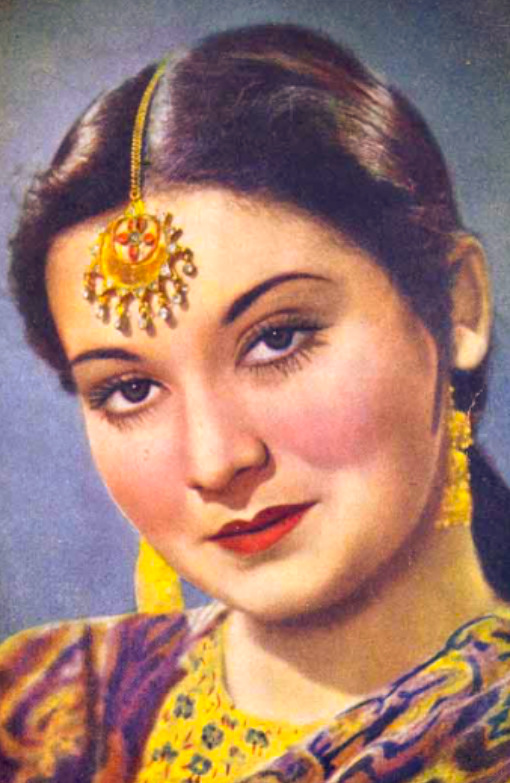
Manorama, 1940s.
Manorama was born in Lahore in 1926 to a irish mother and a anglo indian father, as Erin Isaac Daniels.
Starting out as a child actress in the Lahore Film Industry in the late 30s, she had her breakthrough in “Khazanchi” in 1941 opposite M. Ismail and Ramola Devi. Another big success was “Khaandaan” in 1942, where she played alongside Noor Jehan and Pran.
Until partition in 1947 she was one of the most popular actresses in Punjab, and appeared in both hindi/urdu and in punjabi movies.
In 1947, she fled to India upon partition, and while she had some initial success in both hindi and punjabi movies, from around 1953 she was relegated to supporting/character roles, and from 1958 (at the age of 32) in mother roles.
She would then mostly be remembered in comedic villainous roles like in Seeta aur Geeta, and from the 70s on she would - together with fellow actors from her generation, like Veena - frequently appear in punjabi movies of the time.
Her last movie was “Water” in 2005, by Deepa Mehta.
She died alone and forgotten in 2008.
#Manorama#Erin Isaac Daniels#Bollywood#Old Bollywood#Vintage Bollywood#Anglo Indian#Anglo Indian heritage
14 notes
·
View notes
Text
youtube
RIP Sir Michael Gambon (1940-2023) aka Albus Dumbledore
#Sir Michael Gambon#Michael Gambon#Anglo-Irish Actors#British Actors#Albus Dumbledore#Professor Dumbledore#Harry Potter#Notable Deaths in September 2023#Notable Deaths in 2023#Youtube
3 notes
·
View notes
Text
I recall watching the 1978 TV miniseries Holocaust when it premiered and having a reaction similar to, as I learned, a number of journalists. The series, about the murder (in the context of the Nazi rampage), of a German-Jewish family named Weis, has a crudity that made some dismiss the series out of hand, although it became useful as a teaching tool, introducing those who won’t read to the major events and places of the Nazi genocide. One issue, however, is the Hollywood-handsome cast, and how few of Holocaust’s actors were in any way recognizable as Jewish citizens of Western Europe. We don’t want caricature (such as with Bradley Cooper’s [another non-Jew] absurd, outsize prosthetic nose for his role as Leonard Bernstein in the forthcoming Maestro), but we see here an old problem, namely the Hollywood refusal, for the most part, to deal in ethnicity not Anglo-Saxon. We therefore have name-changing, hair-straightening, and make-up that will make actors conform to preferred white models. Holocaust might be the problem writ fairly large in its day; the more contemporary model might be the summer 2023 hit, Christopher Nolan’s blockbuster Oppenheimer. This film, paired with a far larger 2023 hit, Barbie (which gives acceptable politics to the doll once condemned by feminism), together formed a calculated phenomenon called “Barbenheimer,” together making well over a billion dollars and keeping theaters open a trifle longer, fading as they are in the wake of “streaming” and other asocial media consumption.
The story of the “father of the atom bomb,” Oppenheimer presents a crucially important tale about a Jewish intellectual who stands in a pantheon, reminding us of the Jewish mind’s centrality to the advancement of human consciousness, and essential resistance (there are important exceptions that tend to prove the rule) to reactionary forces in the human narrative. There are people whose contributions to the human intellect are extraordinary. They include Spinoza, Marx, Freud, Einstein, Kafka – I’ll add Bob Dylan, our Nobel (I say “our” to represent both Jews and the generation of the 1960s, the true “greatest generation,” if we must have one, for its inquiry), and J. Robert Oppenheimer, who transformed our notion of Being. In the film, J. Robert Oppenheimer is played by Cillian Murphy, an Irish actor popular for his role in the “streaming” TV series Peaky Blinders. Oppenheimer did such impressive business that Murphy is already a strong candidate at the next Oscar ceremony. But in no way can I say he conveys anything like the essence, and not the details, of the scientist-poet who made the hellish “gadget” (as it was nicknamed during its development).
I have thought of Oppenheimer as the “scientific Kafka.” There is some physical resemblance; both, as young men (Kafka did not have a long life) had shocks of dark hair, Oppenheimer’s worn to the right. They had pointed features, and above all notable gazes. Kafka’s eyes were penetrating, looking into the horrors of the century which at times seems his alone. Oppenheimer’s eyes, and countenance, were poignantly sad. Both men understood persecution, at personal and intellectual levels, Kafka the great master of persecution narrative in The Trial and other works, many destroyed, Oppenheimer, tormented in school, locked in a freezer by bullies. He tended to bring on the torment, since for all his intellect he could not understands the culture of the bully, as child or adult, unwisely showing off his intellect.
Toward the end of his life, the Oppenheimer sadness seems overwhelming, not only because of the loss of government clearance (for a man who permitted the U.S. government to exist by allowing its “victory”), but because of the truth he witnessed. He is known for, among other quotes, the apocalyptic line from the Bhagavad-Gita, said by Vishnu to the Prince: “I am become death, the destroyer of worlds.” This, in the context of a late interview, was filmed in tight close-up, as Oppenheimer wiped an eye, holding his pipe. He is an old and stricken man, still not really advanced in age. In the Nolan film, we get the line, in one form or other, several times, once when he is in the middle of sex. Sex, as an affirmation of life over death, isn’t inappropriate, but here it is simply adolescent, lacking in instruction. This, with other moments, loses Oppenheimer.
As a Jew, Oppenheimer is lost many times. He was well aware of Hitler’s plans for the Jews of Europe simply by watching the lunatic and taking the daily press seriously, also knowing that what his research would unleash would destroy Europe. But he was too late, faced with the prospect of “winning the war” by wiping out Japan. Anti-Semitism would be addressed only in the affirmative, with Oppenheimer the archetypal propitiatory victim.
This topic needs attention. To me, the book by far the most useful on the dropping of the atomic bomb is Gar Alperovitz’s The Decision to Use the Atomic Bomb (1995). This meticulous book dispenses once and for all with notions that the bomb was the only way to bring the “Japs” to heel, and that the bomb was the only way to “win” the war in the Pacific, which would have been at the cost, so the story goes, of millions of lives had the bomb not been used. Japan, by late 1944, was surrounded, facing the prospect of a Russian invasion, out of food and other provisions. The emperor might well have demanded fealty to the bitter end, but this would assume he was of the same cynical pragmatism as the American brass, the same savage immorality as Harry S. Truman, our “common sense” president, whose down-home wisdom is revealed in Merle Miller’s interview book Plain Speaking (1973). The same plain-spoken man informs us of his lack of conscience, so when he made the decision for genocide, he didn’t mull over it, he wasn’t a “crybaby” (as he accused Oppenheimer of being). He was the man from Missouri, the “show me” state, the state that opted for slavery, bringing about the Missouri Compromise on slavery in 1820, thus assuring the ultimate cataclysm. Truman needs much examination indeed. An entertaining start is the 1982 satirical documentary The Atomic Café, which shows Truman on camera announcing the bomb, preceding his remarks with a little smirk to the newsmen, then, putting on his serious face, implores god to make sure the bomb is used for “His purposes.” A priest appears, as if to bolster Truman, suggesting that people take “protective devices” with them into the home fallout shelter once the H-bomb became a reality. Truman was the common-sense guy who got behind the National Security Act of 1947, creating the alphabet soup of intelligence organizations including the CIA. He argued for “Soviet containment,” but the U.S. was equally contained, as Truman prepared the country for McCarthyism. For a time, especially during the Reagan era, Truman Democrats stood out in the halls of state, as people who had no truck with liberalism and the Sixties rabble. Oppenheimer had reason to cry.
The men who opted to blow up two fragile cities filled with women, children, and the elderly, were nothing but monsters. But was Oppenheimer among them? Of course he was. This Universal Man, who thought that ultimate questions could be answered more by the humanities than the sciences, was a cheerleader. In the Nolan film, Murphy/Oppenheimer addresses his scientists at Los Alamos post-bomb. At one point, a shaken “Oppie”, as he was known, envisions his audience, the skin melting from their bodies. This is the moment of Oppie’s empathy, so it seems. But what about the Japanese children with melting skin hanging from their bodies like so much dripping chocolate? Is the newsreel footage of the Hiroshima/Nagasaki catastrophe simply passe? Or is it in bad taste, judged so by the man who made three Batman films?
The destruction produced by Oppenheimer would have a place in the science-fiction cinema, where giant bugs and lizards would be used as inadequate metaphor, since Oppenheimer showed us that in an instant the human race could become a myth. Edward Teller, the Joker/Lex Luthor/Dr. Strangelove of the tale, drove the point home a thousand times over with his H-bomb. Here, Oppie becomes the most inert, impotent Superman, shriveled from being out of the sunlight too long, bathing instead in the poison of the bomb.
It has been reported that after the success of the bomb, Oppie was known to stride about Los Alamos in a manner reminiscent of Gary Cooper in High Noon. This makes sense. He wanted, for a long time, to replace the sissy with the superman, the boyish Jew with the macho man. General Leslie Groves, in charge of the project, let Oppie wear the slouch hat, the bomber jacket (or the sport coat), even an Army uniform (he was reminded that this was too much), and place the project in New Mexico, where he could ride horses and survey the land like a real cowboy.
I couldn’t help in watching this film but be reminded of the TV series Breaking Bad, about which I’ve written. The show is about a family man, a scientist (he knows much, but his peculiar sense of self consigns him to high school instruction) also in New Mexico, who stops being a teacher, deciding instead to manufacture an addictive drop, a perfected one, in massive quantity, as he goes about bolstering his reckless ego and annihilating domestic life. Is Walter White a symbol of American masculinity equal to Robert Oppenheimer? Certainly not. White would not go crying to Harry Truman. Oppenheimer retained the ability to cry, even on the cusp of the TV western’s hegemony, which White would have enjoined. And White could care less about recommending to Einstein that T.S. Eliot be brought to the Institute for Advanced Study at Princeton, to meld the humanities to advanced physics (F.R. Leavis might have brought up his tirade against C.P. Snow and the “two cultures,” but I think Oppenheimer would have had Leavis’s favored answer – we have only one culture).
The complexity of the Oppenheimer personality is lost in this movie, which becomes grindingly tedious, especially in its last hour. We are faced with endless shots/countershots of Oppie vs. bureaucrats out to nail him for not getting with the program, and being sympathetic to “commies.” This story is well-known. We need its drama, and the factors causing Oppie’s promotion by the press after the bomb (the basics, are, again, well-known), and his utter dismissal as a sacrificial lamb at the start of the Cold War. We are deprived of the factors transforming him into the destroyer of worlds, as well as those making him into the pathetic cowboy, and the smart aleck who could not mount a sensible defense in the face of imbeciles without being a stupid, juvenile comedian. He seemed to understand that Shakespeare, Donne, T.S. Eliot, and the French Symbolists, might save us, not theoretical physics. Or perhaps these coupled together. We’ll never know.
There is a compelling documentary of some thirty years ago entitled The Day After Trinity. There isn’t a lot of revelatory data, but it doesn’t engage in posturing, as is the case with Oppenheimer. Trinity gives us some privileged moments of Oppenheimer, as much an enigma as the artists and scientists he admired. Could he, had he not crumbled, informed us why we exist? He seemed to toy with the preposterous but central question; it’s entertaining to speculate, but perhaps a waste of time, especially as the humanities are dismissed.'
#Oppenheimer#Holocaust#The Day After Trinity#Christopher Nolan#Shakespeare#Donne#T.S. Eliot#Marx#Freud#Einstein#Cillian Murphy#Peaky Blinders#Bhagavad Gita#The Decision to Use the Atomic Bomb#Gar Alperovitz#Harry S. Truman#Plain Speaking#Merle Miller#Edward Teller#Leslie Groves#Los Alamos#Institute for Advanced Study#Princeton
4 notes
·
View notes
Text
Birthdays 8.14
Beer Birthdays
Eugene L. Husting (1848)
Brandon Hernández (1976)
Five Favorite Birthdays
Emmanuelle Beart; French actor (1965)
Halle Berry; actor (1968)
Mila Kunis; Ukrainian-American actor (1983)
Gary Larson; cartoonist (1950)
Steve Martin; comedian, actor, writer, banjo player (1945)
Famous Birthdays
Russell Baker; essayist (1925)
Emmanuelle Béart; French actress (1963)
Catherine Bell; actor (1968)
Herman Branson; African-American physicist, chemist (1914)
Sarah Brightman; English singer-songwriter (1960)
John Brodie; San Francisco 49ers QB (1935)
Lodewijk Bruckman; Dutch painter (1903)
Sharon Bryant; R&B singer (1956)
Kevin Cadogan; rock singer-songwriter, guitarist (1970)
Méric Casaubon; Swiss-English author (1599)
Yannoulis Chalepas; Greek sculptor (1851)
Darrell "Dash" Crofts; singer-songwriter and musician (1940)
David Crosby; rock singer (1941)
Charles Jean de la Vallée-Poussin; Belgian mathematician (1866)
Mstislav Dobuzhinsky; Russian-Lithuanian-American artist (1875)
Slim Dunlap; singer-songwriter and guitarist (1951)
Tracy Caldwell Dyson; chemist and astronaut (!969)
Richard R. Ernst; Swiss chemist (1933)
Erica Flapan; mathematician (1956)
Francis Ford; actor and director (1881)
John Galsworthy; English writer (1867)
Alice Ghostley; actor (1926)
Larry Graham; soul/funk bass player and singer-songwriter (1946)
Buddy Greco; singer, pianist (1926)
Marcia Gay Harden; actor (1959)
Jackée Harry; actress (1956)
Robert Hayman; English-Canadian poet (1575)
Lee Hoffman; author (1932)
Leopold Hofmann; Austrian composer (1738)
Doc Holliday; dentist, wild west gambler (1851)
James Horner; composer (1953)
Ernest Everett Just; African-American biologist (1883)
Jan Koetsier; Dutch composer (1911)
Margaret Lindsay Huggins; Anglo-Irish astronomer (1848)
William Hutchinson; founder of Rhode Island (1586)
Magic Johnson; Los Angeles Lakers (1959)
Stanley A. McChrystal; American general (1954)
John McCutcheon; folksinger (1952)
Paddy McGuinness; English comedian (1973)
Lionel Morton; English singer-songwriter, guitarist (1942)
Bruce Nash; film director (1947)
Frank Oppenheimer; particle physicist (1912)
Hans Christian Ørsted; Danish physicist and chemist (1777)
Susan Saint James; actor (1946)
Paolo Sarpi; Italian writer (1552)
Ben Sidran; jazz and rock keyboardist (1943)
Stuff Smith; violinist (1909)
Danielle Steel; writer (1947)
Jiro Taniguchi; Japanese author and illustrator (1947)
Bruno Tesch; German chemist (1890)
Ernest Thayer; "Casey at the Bat" writer (1863)
Bruce Thomas; English bass playe (1948)
Pieter Coecke van Aelst; Flemish painter (1502)
Carle Vernet; French painter and lithographer (1758)
Claude Joseph Vernet; French painter (1714)
Earl Weaver; Baltimore Orioles manager (1930)
Wim Wenders; German film director (1945)
Lina Wertmüller; Italian film director (1926)
2 notes
·
View notes
Text
Unwrapping the Wonka Bar Vol. 1 - Where is Charlie’s Town Located? Part 3
If you haven’t read the previous post, click here for Part 2 to make sure you are caught up to speed. If you’re already read the previous posts, then welcome back and let’s get back to the show!
Exhibit #2: The Accents of the Inhabitants of Charlie’s Town
When trying to parse out where someone is from, one of the best ways to do so is to decipher what kind of accent they speak with, and in the case of Charlie’s town there seems to be a divide amongst the population. Now, before we move on with this analysis, I need to clarify two terms I will be using to ensure the least amount of confusion as possible. The two groupings of English accents that will be used in this analysis will be what we will refer to as a “British Accent,” or all the accents spoken anywhere on the British Isles (the United Kingdom and the Republic of Ireland), and a “North American Accent,” which is to say any accent spoken in Anglo-North America (the United States and Canada). With these parameters set, we can now go in depth into the backgrounds of the residents of Charlie’s town and try to piece together where they might live.
When it comes to the residents of Charlie’s town who speak in a British Accent, these residents include:
All seven members of the Bucket family.
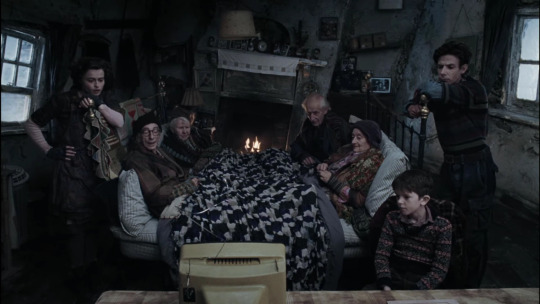
Sidebar #2.1: Mr. Bucket’s actor, Noah Taylor, is Australian and fakes a British Accent throughout most of the film, but you can hear his normal Australian accent, which is a bit more high-pitched and melodious, during his first line of dialogue in the film when he says “Evening Buckets.” As to an in-universe explanation for this literal slip-of-the-tongue, Mr. Bucket’s father, Grandpa George, was played by actor David Morris who hailed from Folkestone, England, a coastal town in County Kent, meaning that sea-faring industries were a major component of the town’s economy. Since Grandpa George speaks in the working class southern English accent of his actor, perhaps he too has roots in Folkestone and he worked on a boat when he was younger, and instead of leaving Grandma Georgina behind he took her on the boat too. This means that the two would have ended up wherever the boat docked, which very well could have been Australia. Perhaps then Mr. Bucket could have been born in Australia and his family could have spent the earliest years of his life there because Grandpa George found work there, meaning Mr. Bucket would have interacted with many Australian children and thus learned to speak like them. However, Grandpa George would then lose his job in Australia and this would force him to move his family back to Folkestone, the town where his journey to Australia would have begun years prior. And while Mr. Bucket would have then grown up around people who spoke with British Accents, and thus would also being to speak like them on a regular basis, the Australian accent he picked up during his formative years would never be truly erased from his speech pattern and so sometimes he would speak in such a manner, such as when he greeted the family after returning home from a long day at work in order to provide for his family as his father did before him.
Sidebar #2.2: Similar to Mr. Bucket, another member of the family, Grandpa Joe, is played by a non-English actor, in this case Irish actor David Kelly. Charlie’s favorite grandparent speaks in a mostly English accent, but one can still hear the influence of his normal Irish accent when comparing Grandpa Joe’s dialogue to that of David Kelly speaking in interviews, speeches or his dialogue from other roles where he did not have to fake an accent. The easiest explanation for this is that, just like Mr. Bucket who we say was not born in England, Grandpa Joe was born in Ireland to an Irish family and at some point left Ireland in search of work. Now, this forced him to adopt a much more English-sounding accent in order to assimilate into a society which was notoriously fraught with anti-Irish sentiment, at least amongst the British Accent speaking population, at the time due to the backlash against efforts by Irish Nationalists to unify the island of Ireland and free it from British rule. However, the love and pride he felt for his homeland prevented him from outright purging his original accent from his speech and so he did not entirely loose his natural accent as well.
The two dog-walking men.
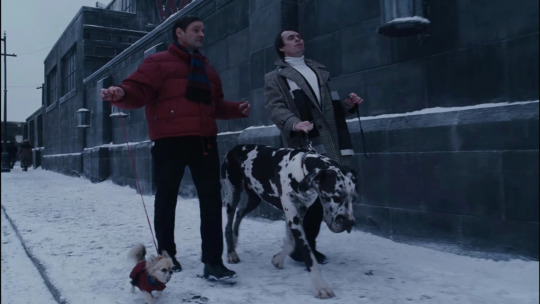
The middle-aged blonde lady in the corner store where Charlie purchases the Wonka Bar containing his Golden Ticket whom the film credits refer to as “Customer in Shop.”
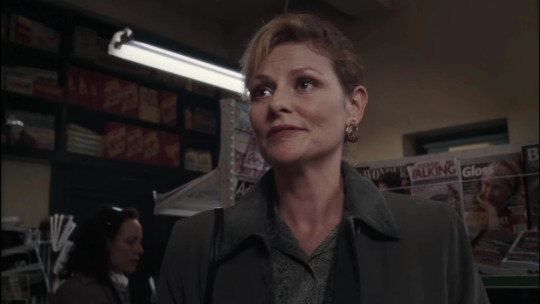
The owner of the corner store where Charlie purchases the Wonka Bar containing his Golden Ticket whom I have come to the conclusion we all call “Bill,” but the film credits refer to as “The Shopkeeper.”
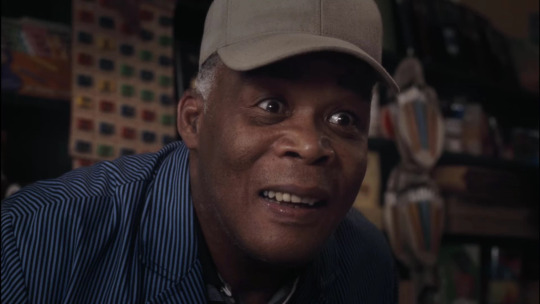
Sidebar #2.3: The actor who plays Bill the Shopkeeper, Oscar James, is from Trinidad and Tobago, however the island nation was a Crown Colony of the United Kingdom until 1962, around the time Oscar James was twenty. Therefore, Oscar James portrays Bill the Shopkeeper as speaking an accent that is a fusion between an English and a Trinidadian accent, much like Grandpa Joe does with his Irish-English fusion accent. And like Mr. Bucket with Noah Taylor’s natural Australian accent, you can hear Bill the Shopkeeper’s Trinidadian accent when he gets exited, in his case after Charlie discovers he won the last Golden Ticket and he giddily adds “In my shop, too!” Now, with respect to Bill the Shopkeeper, according to an article from The National Archives, the official archive and publisher for the UK Government, England and Wales, titled “Bound for Britain-Experiences of immigration to the UK,” from 1947 to 1970 nearly half a million people left Trinidad and Tobago and other island colonies in the British West Indies for the UK in search of a better life following the rebuilding of the UK in the post-World War II period. It would make sense that Bill the Shopkeeper would have been an immigrant like these too, with him leaving Trinidad and Tobago in his late teens or early twenties in search of a better-paying job elsewhere. But because immigrants from rural countries rarely have the skillset necessary for the highest-paying jobs, Bill would have most likely been relegated to the lowest-level jobs, like sales representative. But after years of barely earning enough to get by, Bill’s hard work eventually pay off and he would become the shopkeeper of his own corner store, where he now serves the community of Charlie’s town and now lives the life that all immigrants dream to achieve. And thus, because he would have immigrated as an adult, unlike Mr. Bucket, he would have spoken with a Trinidadian accent throughout his formative years. But due to the mere chance he was born an immigrant, Bill the Shopkeeper, just like the Irish Grandpa Joe, would have found it useful to mimic an English accent when speaking to people in the broader society as it would have, albeit only slightly more considering his Afro-Caribbean roots, helped him advance in the xenophobic, Anglo-centric society of twentieth century Charlie’s town. This repression of his natural accent is what would eventually lead him to find success as a small businessowner, yet when he finds himself in a scenario where his humanity must show itself, his natural accent takes over, such as when he is elated to discover that a local boy found Willy Wonka’s last Golden Ticket in his shop of all places.
The bald man who offers Charlie $50 and a new bicycle for the Golden Ticket at the corner store where Charlie purchases the Wonka Bar containing his Golden Ticket whom the film credits refer to as “Tall Man.”
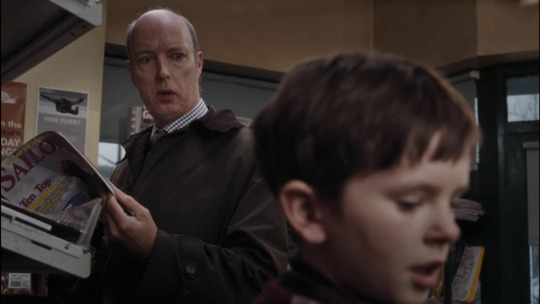
The lady at 103 Pickwicket Avenue handing out Halloween candy whom the film credits refer to as “Jolly Woman.”
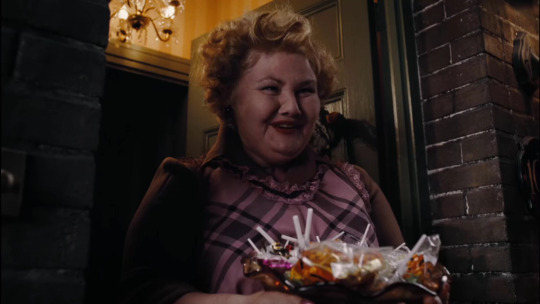
And last, but not least, Dr. Wilbur Wonka.
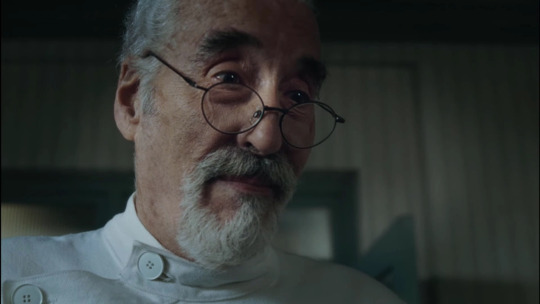
And when it comes to the residents of Charlie’s town who speak in a North American Accent, these residents include:
The one and only, Willy Wonka.
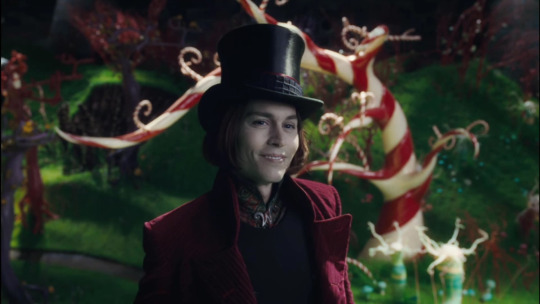
The news reporter standing outside of Willy Wonka’s Chocolate Factory reporting on the announcement of the Golden Ticket contest, whom the film credits refer to as “TV Reporter.”
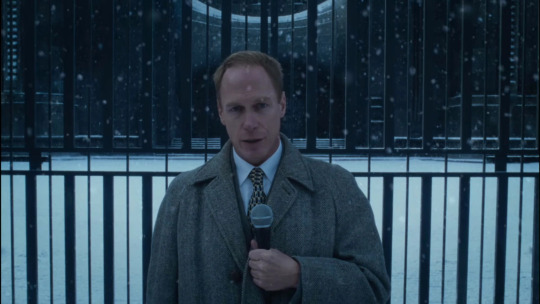
Sidebar #2.4: We do not know if this reporter is a resident of Charlie’s town or if he is just an American or Canadian journalist working for a news network from one of those countries that happens to be stationed at the bureau office for Charlie’s town and reporting on the biggest story developing overseas for his audience back home. Either option is acceptable, but I will say that he is a resident for reasons that will become relevant later on.
The reporter who speaks after the report on Augustus Gloop finding his Golden Ticket and breaks the news to his viewers that Mike Teavee found his Golden Ticket.
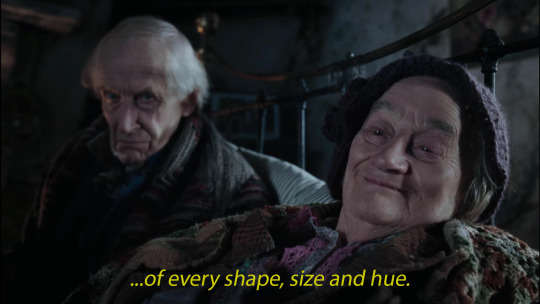
The reporter who speaks after the report on Mike Teavee finding his Golden Ticket.
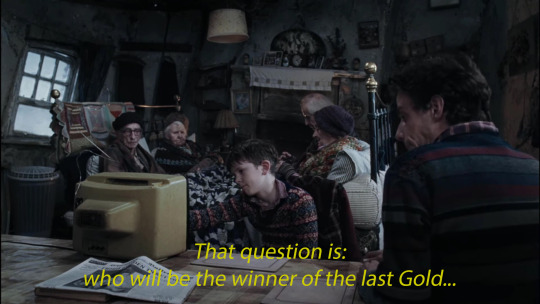
The middle-aged woman who offers Charlie $500 for the Golden Ticket at the corner store where Charlie purchases the Wonka Bar containing his Golden Ticket whom the film credits refer to as “Woman in Shop.”
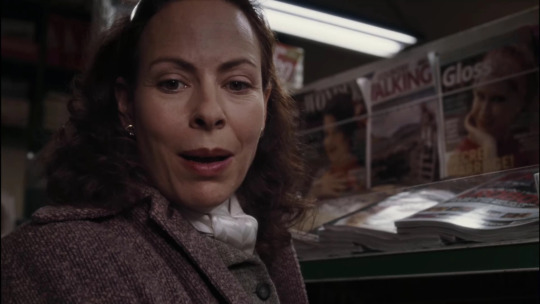
Ruthie, Veronica and Terrance (Whom shall be referred to as “Willy Wonka’s friends” collectively).
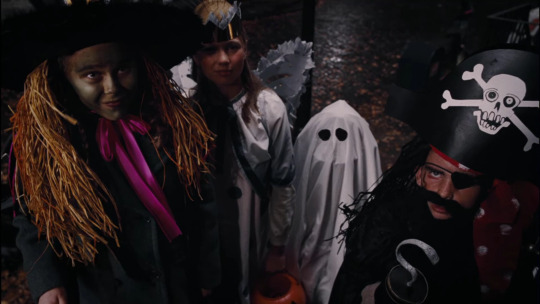
And the security guard at the Flags of the World exhibit whom the film credits refer to as “Museum Guard.”
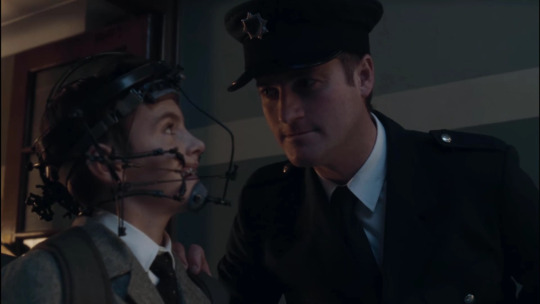
Now, when we tally up the results of our analysis, we see that out of the 23 residents who speak on screen, there are a total of 14 people, or 60.9% of the sample, who speak with British Accents and 9 people, or 39.1% of the sample, who speak with North American Accents in Charlie’s town. Now, while this seems to be a perfect balance between Tim Burton’s vision of an unspecified Anglo-American fusion setting, while also being significantly more British than it is American, and thus more in line with Roald Dahl’s vision, a deeper look into the data reveals an interesting trend. While the data gathered for this analysis comes from one physical location, Charlie’s town, the data spans three decades, that is to say the residents with speaking roles are residents of Charlie’s town in both 2005 and 1975. With such a wide time gap between the sources for our data, it only makes sense to divide these two eras into different data sets for a more accurate picture.
And so, when we break down our list of characters, we see that the residents of Charlie’s town who spoke with British Accents in 1975 include:
“Jolly Woman” and Dr. Wilbur Wonka. I however will be including Bill the Shopkeeper, Grandpa Joe, Grandma Josephine, the then one-day-to-be Mrs. Bucket and one adult who will serve as one of Willy Wonka’s friend’s parent in the total.
Sidebar #2.6: I included these extra characters whom we do not see in Willy Wonka’s flashbacks in the count in order to boost up the numbers since we need more data to paint a more accurate picture of the demographics of Charlie’s town. However, instead of just making data up out of thin air, I argue that it makes logical sense that these characters would be living in the town during this time for the following reasons. I included Bill the Shopkeeper as he is clearly an immigrant in this non-Caribbean land due to the fact that he speaks with an accent distinct from the various British or North American accents spoken by the town’s residents. Not to mention the fact that he would have been in his early-thirties in 1975, meaning he would have been a bit older than the mostly young people who would have left their home island in search of economic opportunities in that year. So, it would only make sense to place Bill the Shopkeeper’s date of immigration about a decade earlier, thus becoming an established resident of Charlie’s town before 1975. Now, when it comes to Grandpa Joe and his family, I included half of Charlie’s family on this list because we do not know if Charlie’s family has been living in this town for a long time, or at least since 1975. Therefore, I divided the family in half, designating three of them as residents of the town for decades while keeping the other three as later economic migrants. As to why I chose Grandpa Joe’s family instead of choosing the Bucket family pre-Charlie, I made this decision since the best insight we have into how many members of Charlie’s family have lived in this town for multiple years is that we know Grandpa Joe’s family has lived in the town since at least 1985 when he worked at Willy Wonka’s first candy store on Cherry Street. We also do not see Grandpa George or Grandma Georgina during the opening ceremony for Willy Wonka’s Chocolate Factory in 1990, perhaps because they had no connection to the factory and chose not to attend but are still residents, or perhaps because they did not live in the town and thus could not attend. This makes sense when you consider the previous assumption of the Bucket family pre-Charlie which involves Grandpa George moving the family about in his search for work, only for him to end up in Charlie’s town where he found work before he got too old to work and ended up bedridden for over a decade. And as for the adult who stands in for one of Willy Wonka’s friend’s parents, it only makes sense that at least one of Ruthie, Veronica or Terrance’s parents would speak with a British Accent, thus coming from a mixed family just like Willy Wonka surely came from as well, with him sounding more like his mother whom does not appear in the film as she appears to have passed away by October 1975 since his father speaks with a British Accent and he does not.
On the other hand, the residents of Charlie’s town who spoke with North American Accents in 1975 include:
Willy Wonka, Ruthie, Veronica, Terrance and the “Museum Guard.” I will also be including three adults who will serve as Willy Wonka’s friend’s parents in the total.
Sidebar #2.7: I used a similar logic for the inclusion of these three adults who do not appear in the film in my calculations as I did for the adult in the British Accent section. Willy Wonka’s friends are clearly American, with them celebrating Halloween by engaging in trick-or-treating, an American tradition, across the neighborhood, and so it makes sense that at least three of the four parents speak with a North American Accent as well. And while there are three friends, therefore there would be six parents in total if neither of them are related, because we are not given any additional information as to whom the friends are, it would not be wrong to assume that perhaps two of the friends are siblings, therefore the friends would only have four parents.
Now, when we total up the results of our second analysis, we see that out of the 15 residents who speak on screen and are theorized to have existed, there are a total of 7 people, or 46.7% of the sample, who speak with British Accents and 8 people, or 53.3% of the sample, who speak with North American Accents in Charlie’s town in 1975. And while this is not an apples-to-apples comparison with the first analysis due to the inclusion of theorized parents for Willy Wonka’s friends, we can see that while residents with North American Accents now make up a majority in Charlie’s town, the demographics of the town are still near-evenly divided in 1975.
On the other hand, when we repeat this analysis for a third time, we see that the residents of Charlie’s town who spoke with British Accents in 2005 include:
All seven members of the Bucket Family, the two dog-walking men, the “Customer in Shop,” Bill the Shopkeeper, and the “Tall Man.”
On the other hand, the residents of Charlie’s town who spoke with North American Accents in 2005 include:
Willy Wonka, the “TV Reporter”, the reporter who speaks after the report on Augustus Gloop finding his Golden Ticket and breaks the news to his viewers that Mike Teavee found his Golden Ticket, the reporter who speaks after the report on Mike Teavee finding his Golden Ticket and the “Woman in Shop.”
Sidebar #2.8: The reason I did not include Willy Wonka’s friends in the total for residents with North American Accents in 2005 is because we do not see them as adults all throughout the film, and while some of you might disagree with this reasoning after I just invented parents for these friends and included them in my totals, my reasoning for this choice is as follows. While Willy Wonka is shown to be a hermit loner throughout most of the film, we know that he had friends at one point in his life, so the idea that those friends he had as a kid do not play a role in his life when he is a successful adult (at least when it comes to business) is as strange as the amazing chocolatier is. Therefore, I propose that Willy Wonka’s friends are still a part of his life, however they have long since moved out of Charlie’s town. The best theory I could come up with is that since they are the only people Willy Wonka trusts, they work for their friend as liaisons between the insular world of the factory, where Willy Wonka can be who he is, and the real world, which is cold, unforgiving and unaccepting of their friend’s genius. This way, the friends can still be a part of his life, but this explains why we never see any of them as adults throughout the film, because they are off somewhere else managing Wonka Worldwide, Inc.’s business relations for their shut-in friend.
And so, when we total up the results of our third analysis, we see that out of the 17 residents who speak on screen, there are a total of 12 people, or 70.6% of the sample, who speak with British Accents and 5 people, or 29.4% of the sample, who speak with North American Accents in Charlie’s town in 2005.
Now, the results of this more in-depth analysis demonstrate why it is important to hyper-analyze the accents of the residents of Charlie’s town. While an overall analysis would show a mostly-British, but still mixed, population, we can now see that that analysis is very misleading when it comes to describing the setting for the majority of the film that does not take place inside the factory. Over the course of three decades, Charlie’s town sees a demographic shift where the population of British Accent speakers goes from 46.7% to 70.6% and the population of North American Accent speakers goes from 53.3% to 29.4%. This 23.9 percentage point difference means that Charlie’s town either experienced a 51.18% increase in the British Accent speaking population or a 44.84% decrease in the North American Accent speaking population from when Willy Wonka was a kid to when Charlie was a kid. And while an analysis of the accents spoken in the town do not tell us which option is the case, it is nevertheless an important piece of evidence that will help us uncover the location of Charlie’s town.
That’s it for Part 3, click here for Part 4 when we analyze the driving system of Charlie’s town and how the data from that analysis relates to the date from this one.
Also, if you have better quality images of the scenes from the film I included in this post, feel free to share them with me so that I may replace the ones I used to improve the experience for the reader.
#unwrapping the wonka bar#charlie and the chocolate factory#charlie and the chocolate factory 2005#unwrappingthewonkabar#charlieandthechocolatefactory#catcf#catcf 2005
3 notes
·
View notes
Text
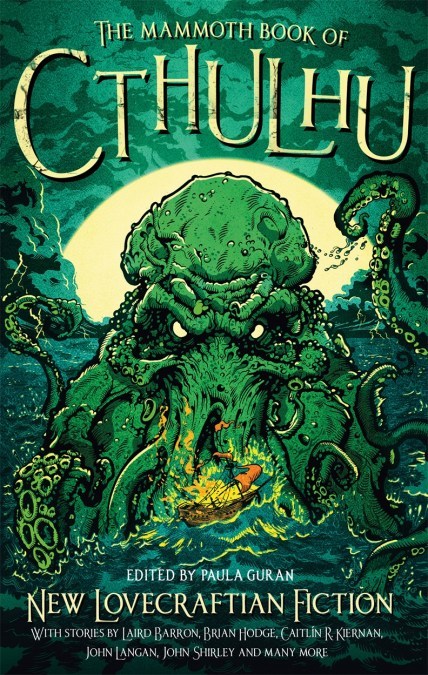
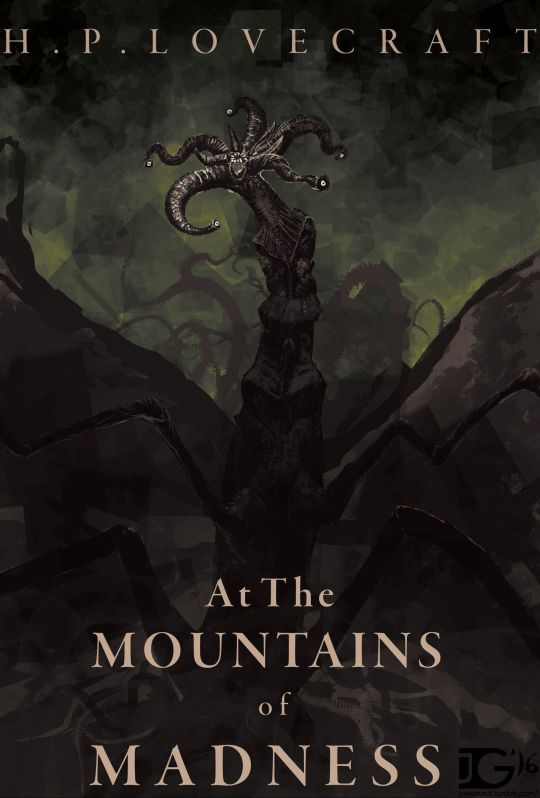
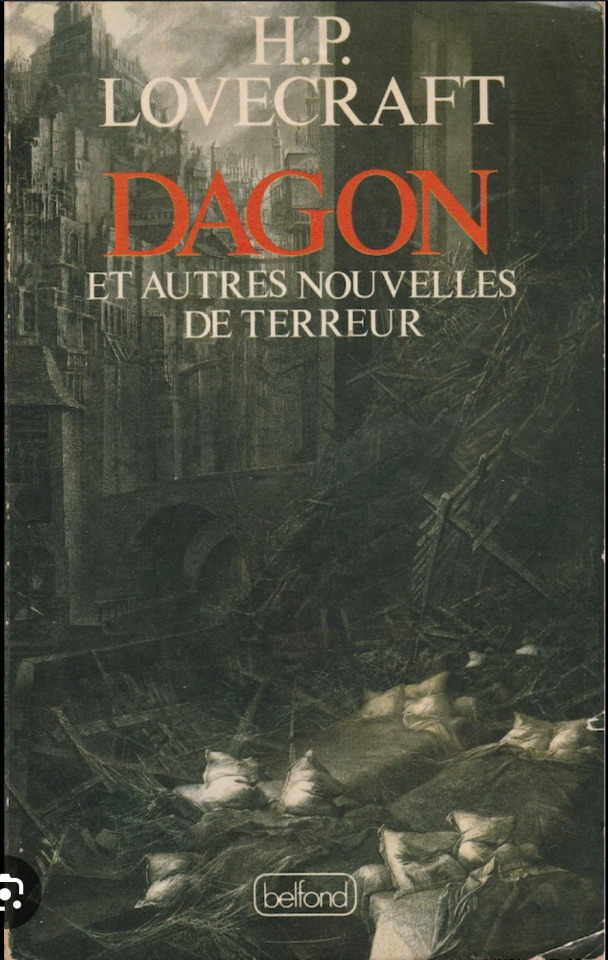
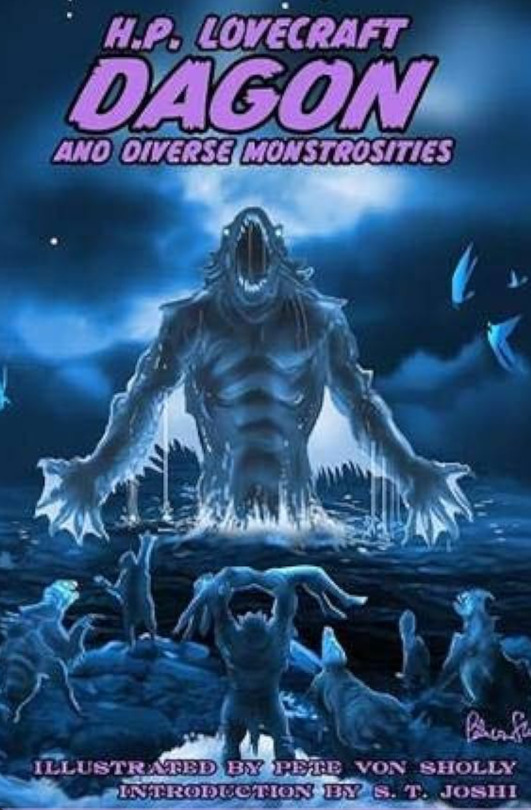
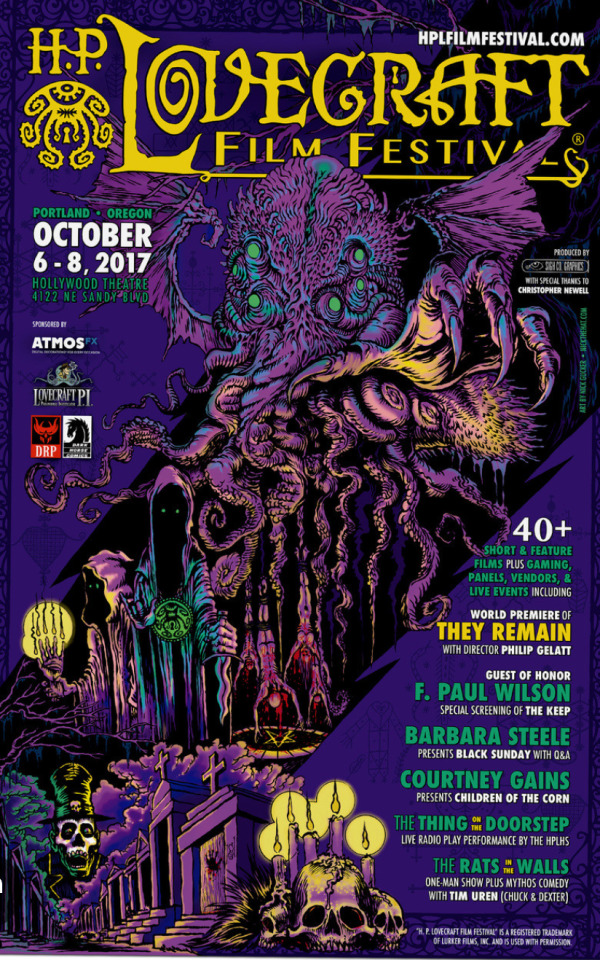
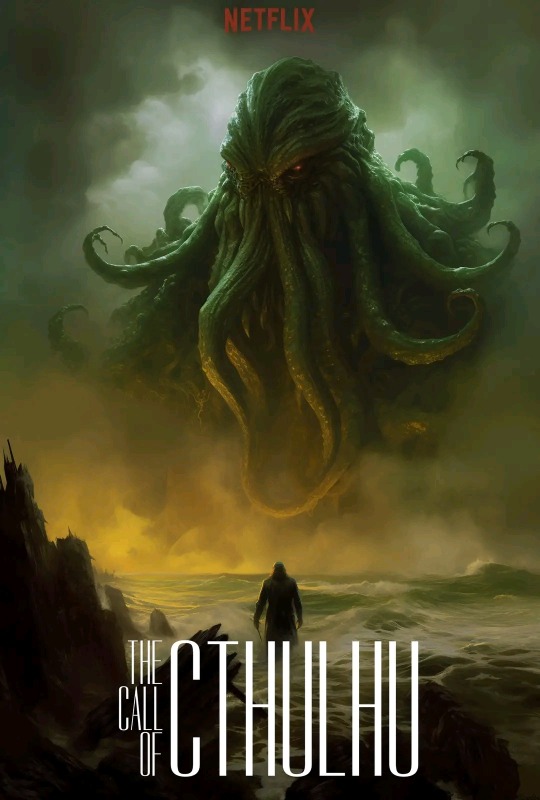
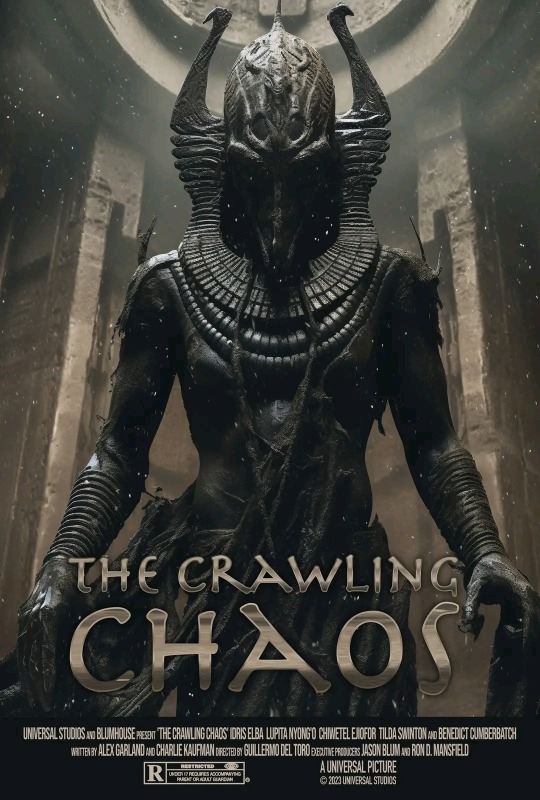
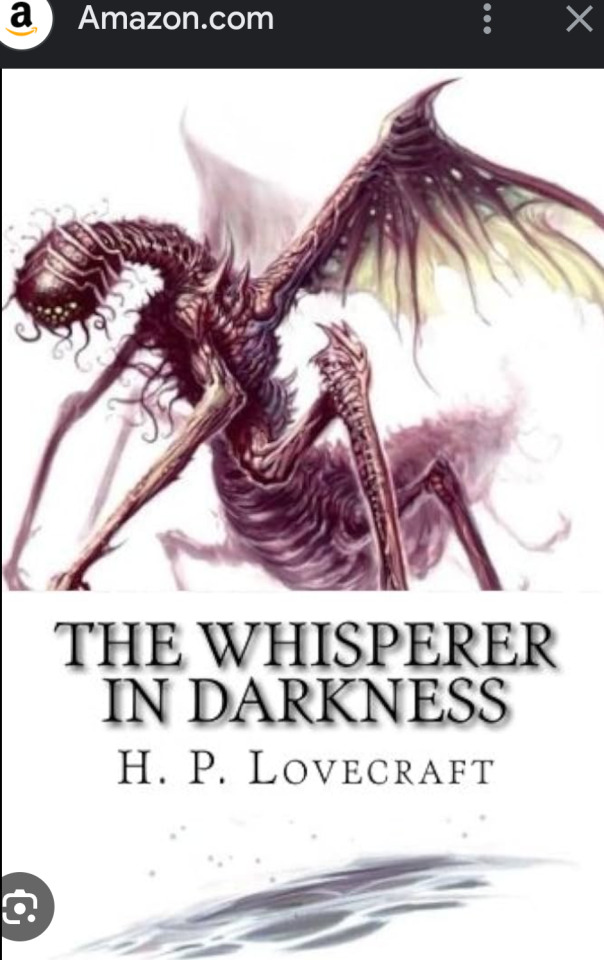
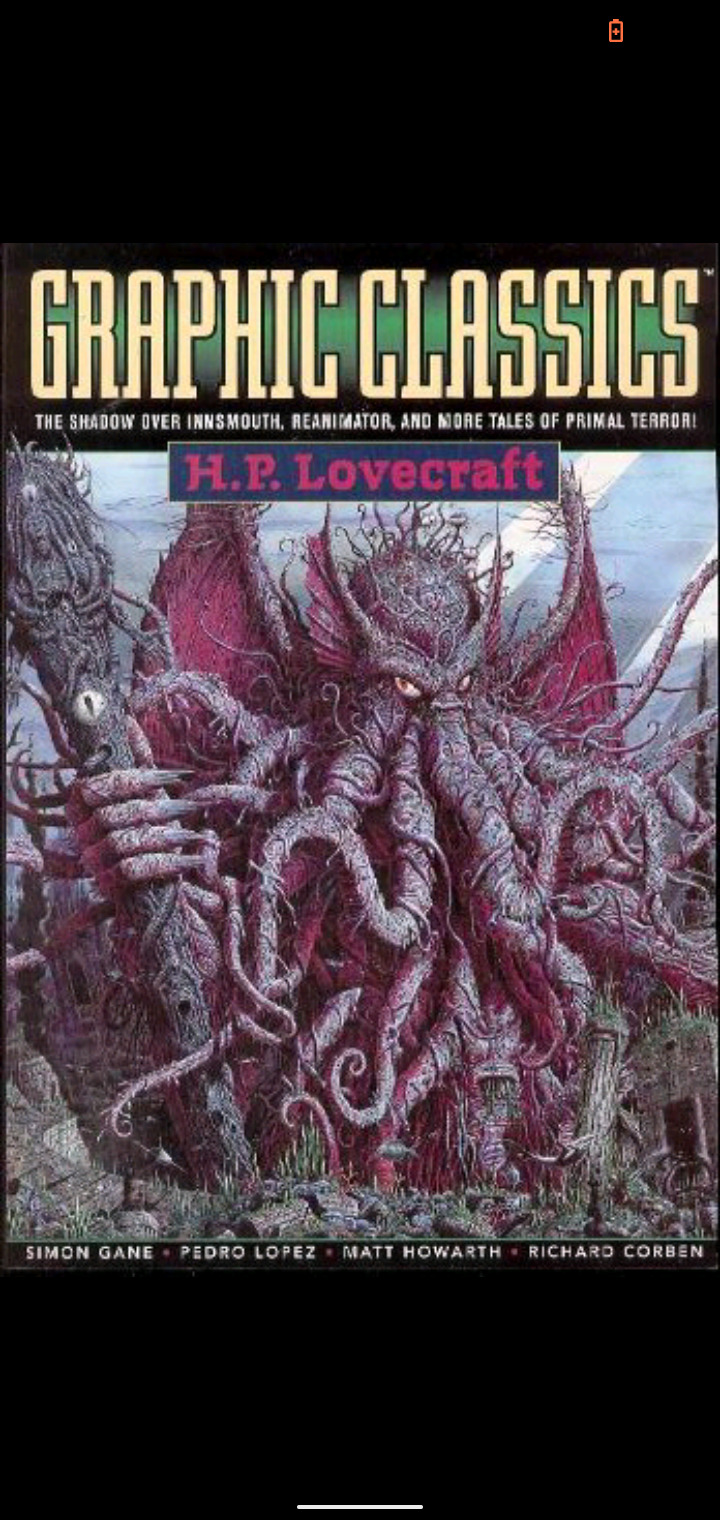
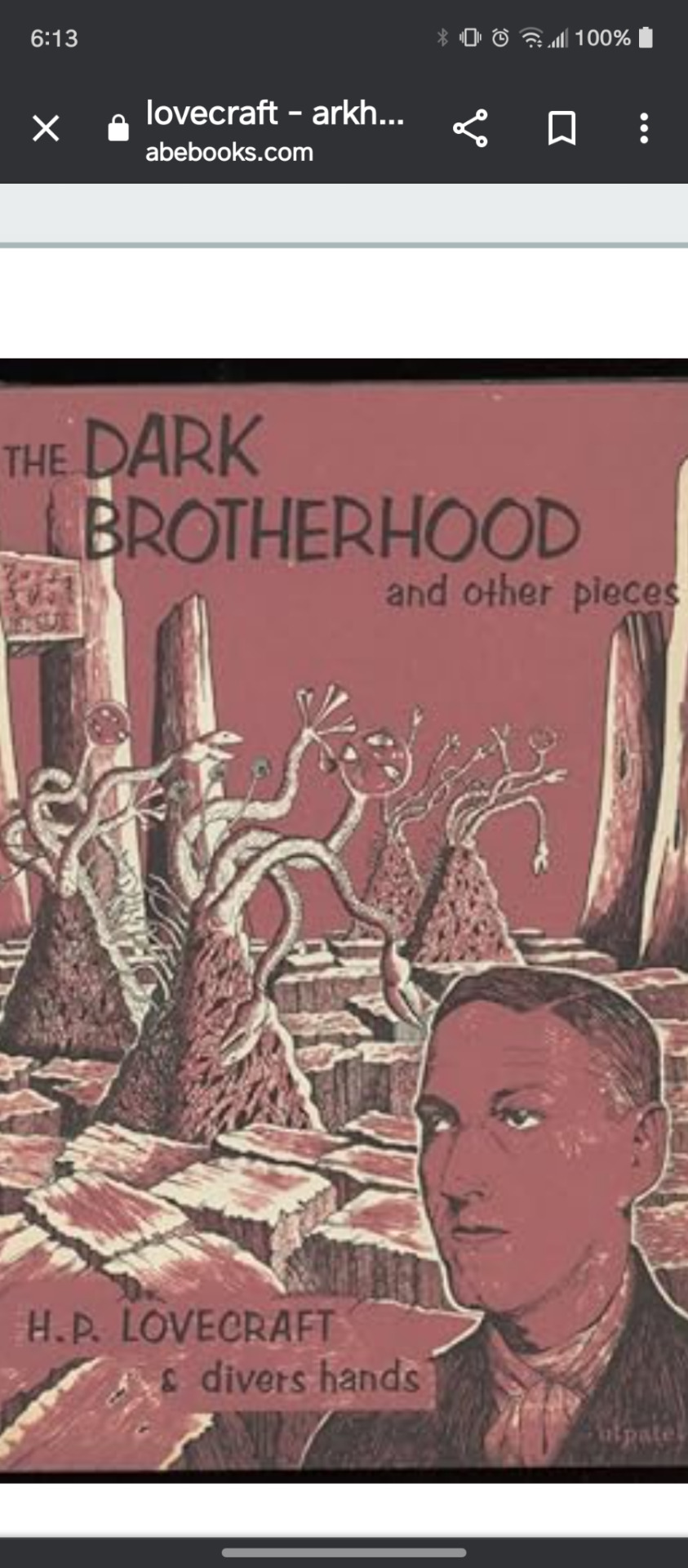
Pics:
1 thru 10. Old stories rendered into new tongues & clad in new arts.
Tales cast into different multi-media variations.
Joined by novel nightmares just set down into print.
All freely fed into the maelstrom of minds that make up new realities as a form of entertainment!
1914: Part 2, Notes.
1. Since I haven't found the full texts to these articles, I'll be using whatever commentary & quotations I stumble across.
2. I think most everybody is aware of Lovecraft's racist beliefs & his willful propaganda of such foul inequality.
3. Isaac Bickerstaffe was an Irish play & booklet¹⁰ writer.
Isaac was also a Lieutenant in the 5th Regiment of the British infantry. And, he served in the Marines during the 7 Years War.
Weird Shit: Bickerstaffe hurt the production of his own 1st play!
Isaac stupidly criticized David Garrick (The top actor-manager of that time!)- for the 'barbarity' of setting Shakespeare's plays to music...
Bickerstaffe's light opera, "Thomas & Sally," was a huge hit - playing around the British Empire!!
From then on, Isaac's comedic works were also successful. He even wrote the 1st English comic opera, "Love in a Village."
More Weird Bits:
3A. A newspaper falsely stated that Bickerstaffe had committed suicide - by drowning himself in the south of France!
3B. Suspected of homosexuality, Isaac fled to mainland Europe.
There, he lived in poverty & misery.
3C. Then, another false news report claimed that Bickerstaffe had died in Sussex, England.
Yet, he actually disappeared around 1808...
3D. After this disappearance, his 'colleague' (Charles Dibdin) was long accused of selling Isaac's songs - as if they were Dibdin's own work...
4. Howard's love of astronomy started when he was 12 years old.
That was when HPL first found his grandma's books on astronomy in the family's attic library.
Soon afterwards, Sarah (Lovecraft's mom) bought him a small mail-order Excelsior spyglass - for 99¢!!
5. Nostradamus was a French astrologer, pharmacist, physician, writer, translator & 'seer.'
He's best known for his book, "The Prophecies," a poetic work that supposedly predicts the future...
Strangely enough, there's several predictions that seem close to actual events.
Yet, you never hear about the totally wrong predictions.
For example, a shooting war (between Russia & the U.S.) was supposed to have started - in the year 2000 AD...
You don't always get what you pay for!
6. Queen Anne of Great Britain was plagued with ailing health all of her life.
She endured 17 pregnancies & yet, outlived all of her children!!
In doing so, she became the last of the Stuart line of succession.
Painfully shy, Anne learned to assert her authority when it was needed!
It was she who oversaw the union of England & Scotland.
7. Johnathan Swift was an Anglo-Irish author, poet, essayist, satirist, political pamphlet maker & the Anglican Dean of St. Patrick's Cathedral in Dublin, Ireland.
He's best remembered for writing the satiric "Gulliver's Travels."
One of his many pen names was Isaac Bickerstaffe!
But, Swift (a Tory) was permanently exiled ("like a rat in a hole") when the Whigs returned to power - right after Queen Anne's death.
Weird Stuff: Swift wrote his own obituary, a year after 1st showing signs of dementia.
Guardians were appointed due to Swift's violent outbursts - with old friends.
Swift, in great pain, tried to rip out his own inflamed left eye!!
Then, Swift spent a whole year with- out saying a word.
But, thankfully, he finally died.
Following his best friend to the grave - a year late.
8. John Partridge published a popular almanac of astrological predictions.
But, Partridge falsely claimed to know the death dates of various church officials!
Swift, using the pen name of Isaac Bickerstaffe, predicted Partridge's death - in late March of that same year (1708)!!
Then, Swift issued a pamphlet stating that Partridge was indeed dead - contrary to Partridge's own rebuttal!
9. Though the planet Venus is usually thought of as Earth's twin - it's actually more like a complete opposite!!
Venus spins backwards, has a day longer than its own year & lacks any seasons!
It's thought to have once being habitable - about a billion years ago!!
10. Librettos (little booklets) are used to mark detailed scene descriptions in operas, ballets or other musicals.
Next: Part 3, Quotations.
0 notes
Text
D.U.D.E Bios: Eadburg Rhydderch
The Cyhyraeth Duke of C.R.C Eadburg Rhydderch
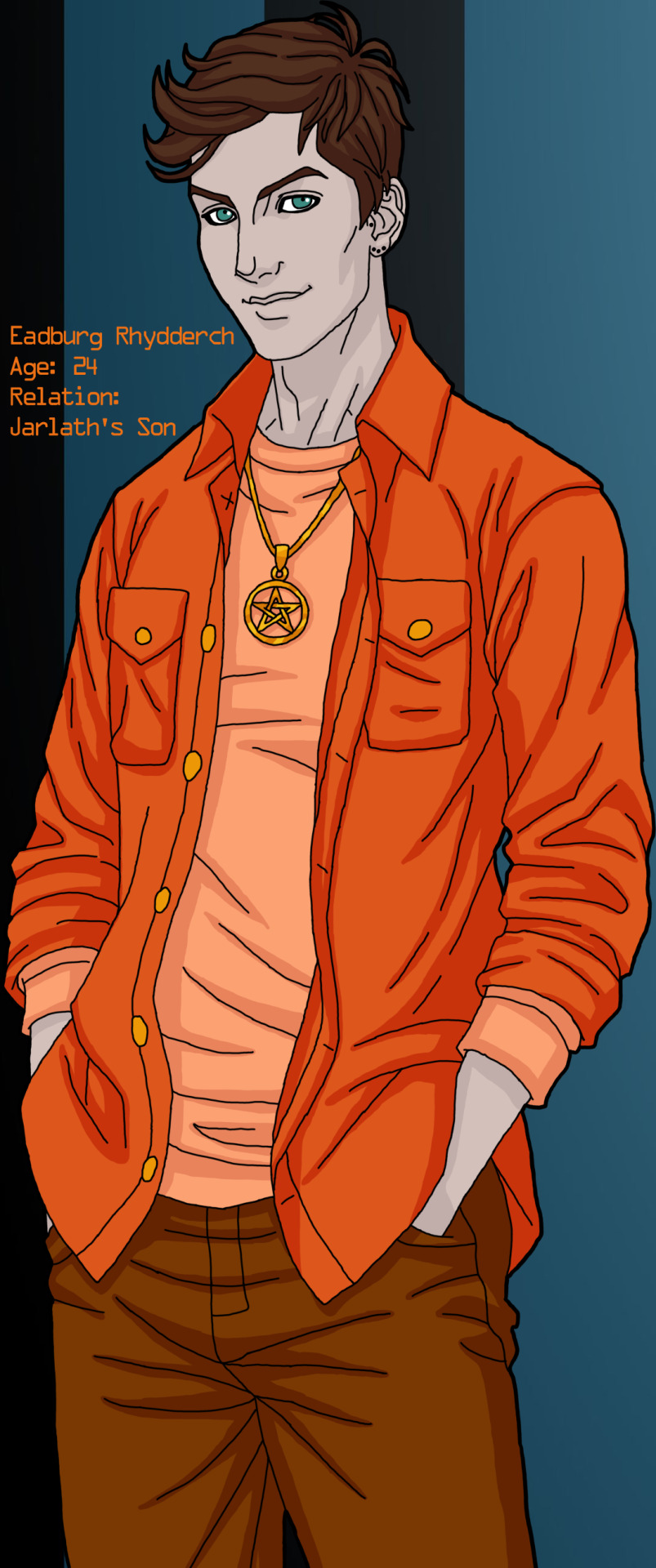
Jarlath's son and Naoise's grandson, Eadburg. An Irish-Catholic living in Wales and a methodic and encouraging father. He's one of Kirby's first cousins once removed.
"You wanna do a summoning circle?"
Name
Full Legal Name: Eadburg Aled Tarzan Fionnlagh Rhydderch
First Name: Eadburg
Meaning: Derived from the Old English elements 'Ead' 'Wealth, Fortune' and 'Burg' 'Fortress'.
Pronunciation: EAHD-burg
Origin: Anglo-Saxon
Middle Name(s): Aled, Tarzan, Fionnlagh
Meaning(s): Aled: From the name of a Welsh river, of uncertain meaning.
Tarzan: Created by Edgar Rice Burroughs for the main character in his novel 'Tarzan of the Apes' (1912).
Fionnlagh: Means 'White Warrior', derived from Old Irish 'Finn' 'White, Blessed' and 'Láech' 'Warrior'.
Pronunciation(s): A-lehd. TAHR-zan. FIN-lyee
Origin(s): Welsh. Literature. Scottish Gaelic.
Surname: Rhydderch
Meaning: From the given name 'Rhydderch', from the Old Welsh name 'Riderch', derive from 'Ri' 'King' and 'Derch' 'Exalted',
Pronunciation: HRUDH-ehrkh
Origin: Welsh
Alias: Cyhyraeth Duke, Eadburg Rhydderch
Reason: This is Eadburg's ring name.
Nicknames: Ed, Eddie, Al, Fionn, Fin, Lee
Titles: Mr
Characteristics
Age: 24
Gender: Male. He/Him Pronouns
Race: Human
Nationality: Welsh
Ethnicity: White
Birth Date: June 16th 1996
Symbols: Banshees, Cyhyraeths, Ghosts, Crowns
Sexuality: Straight
Religion: Irish-Catholic
Native Language: Welsh
Spoken Languages: Welsh, Irish, Scottish (Scots Gaelic), English
Relationship Status: Married
Astrological Sign: Gemini
Theme Song: 'Change of Heart' - Cyndi Lauper (2014-)
Voice Actor: Matt Rees
Geographical Characteristics
Birthplace: Tullahought, Kilkenny, Ireland
Current Location: Llanfaethlu, Anglesey, Wales
Hometown: Llanfaethlu, Anglesey, Wales
Appearance
Height: 6'2" / 187 cm
Weight: 190 lbs / 86 kg
Eye Colour: Blue
Hair Colour: Brown
Hair Dye: None
Body Hair: Sparse
Facial Hair: Clean Shaven
Tattoos: (As of Jan 2020) 10
Piercings: Ear Lobe (Triple, Both), Tragus (Both)
Scars: None
Health and Fitness
Allergies: None
Alcoholic, Smoker, Drug User: Smoker, Social Drinker
Illnesses/Disorders: None Diagnosed
Medications: None
Any Specific Diet: None
Relationships
Allies: (As of Jan 2020) The Rhydderch Clan
Enemies: (As of Jan 2020) None
Friends: Yaroslav Volkov, Kevin Llewellyn, Eachann Mulrennan, Fabian Rhydderch, Iago Rhydderch, Jacob Rhydderch
Colleagues: The C.R.C Locker Rooms / Too Many To List
Rivals: None
Closest Confidant: Fiachra Rhydderch
Mentor: Jarlath Rhydderch
Significant Other: Fiachra Rhydderch (25, Wife, Née McWilliam)
Previous Partners: None of Note
Parents: Jarlath Rhydderch (44, Father), Ursula Rhydderch (45, Mother, Née Cavanaugh)
Parents-In-Law: Finbar McWilliam (55, Father-In-Law), Alisa McWilliam (56, Mother-In-Law, Née Fitzwilliam)
Siblings: Fabian Rhydderch (21, Brother), Gardenia Rhydderch (18, Sister), Hadley Rhydderch (15, Sister), Iago Rhydderch (12, Brother), Jacob Rhydderch (9, Brother), Kayla Rhydderch (6, Sister), Lalage Rhydderch (3, Sister)
Siblings-In-Law: Jean Rhydderch (22, Fabian's Wife, Née Patterson), Hera Byrnes (22, Fiachra's Sister, Née McWilliam), Zaurlock Byrnes (23, Hera's Husband), Timur McWilliam (19, Fiachra's Brother), Hydra McWilliam (16, Fiachra's Sister), Ambrozije McWilliam (13, Fiachra's Brother), Iocasta McWilliam (10, Fiachra's Sister), Bojan McWilliam (7, Fiachra's Brother), Ismene McWilliam (4, Fiachra's Sister), Dino McWilliam (1, Fiachra's Brother)
Nieces & Nephews: Moire Rhydderch (1, Niece), Borko Byrnes (2, Nephew)
Children: Alan Rhydderch (4, Son), Anna Rhydderch (1, Daughter)
Children-In-Law: None
Grandkids: None
Great Grandkids: None
Wrestling
Billed From: Kilkenny, Ireland
Trainer: The C.R.C Wrestling School, Naoise Rhydderch, Jarlath Rhydderch
Managers: Fiachra Rhydderch
Wrestlers Managed: Fiachra Rhydderch
Debut: 2014
Debut Match: Eadburg Rhydderch VS Jarlath Rhydderch. Double Count Out
Retired: N/A
Retirement Match: N/A
Wrestling Style: Brawler / Hardcore
Stables: The Rhydderch Clan (2014-)
Teams: No Team Names
Regular Moves: Belly To Back Suplex, Bulldog, Figure-Four Leglock, Inverted Atomic Drop, Low Blow, Multiple Jabs, Poking /Raking Opponent’s Eyes, Running High Knee Strike, Big Boot, Atomic Drop, Backbreaker Rack, Diving Overhead Chop, High Knee, One-Armed Body Slam, Piledriver, Running Big Boot, Running Leg Drop, Vertical Suplex Powerslam
Finishers: Sleeper Hold, Jumping Knee Drop, Top Rope Jumping Knee Drop
Refers To Fans As: The Fans, The Family
Extras
Backstory: Eadburg Rhydderch of the C.R.C (Welsh Wrestling League / Cynghrair Reslo Cymru) Owning Rhydderch Family. When Jarlath dies Eadburg will have a 1/448th ownership of the promotion. Eadburg is a 'Cyhyraeth Style’ (Brawler / Hardcore) trainer. He’s mostly Irish.
Trivia: Nothing of Note
#D.U.D.E#original character#Rhydderch#C.R.C Wrestling Family#C.R.C Wrestling Promotion#C.R.C Wrestling School#Rhydderch Clan
1 note
·
View note
Text
Rings of Power’s deployment of Oirishness
So I watched the first four episodes of Amazon’s Rings of Power.
I do not think this is a good show and the culture war racist nonsense has lifted it up in a sense - the rush to defend the actors being attacked because they're not the colour of a slice of ham has generated a lot of good will.
And publicity for an Amazon product (that unbelievably has a storyline about Numenorean unions keeping a good man down!).
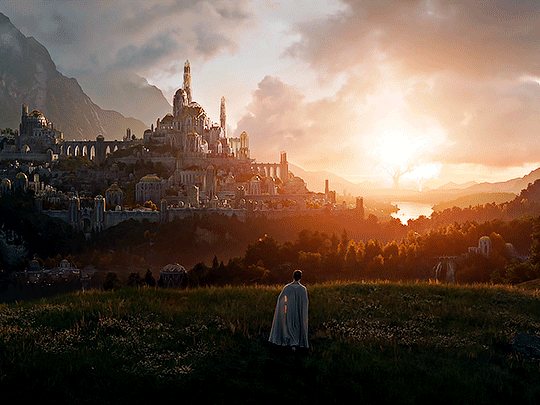
Ed Power wrote a great piece on how the show deploys blarney and Paddywhackery with the legally distinct Hobbit characters https://www.irishtimes.com/culture/tv-radio/2022/08/31/rings-of-power-the-new-hobbits-are-filthy-hungry-simpletons-with-stage-irish-accents-thats-1bn-well-spent/
I still wasn't prepared for the Australian cast essaying accents that traced a line down the east coast of my homeland with each sentence spoken. Lenny Henry too, I thought he'd know better given his alternative comedy era in the 80s.
The 'harfoots' are very difficult for me to watch. It's that same twee crap that's been used from Darby O'Gill and the Little People to Wild Mountain Thyme and Pixie most recently (which has Alec Baldwin doing his Irish accent bit from 30 Rock, but for real).
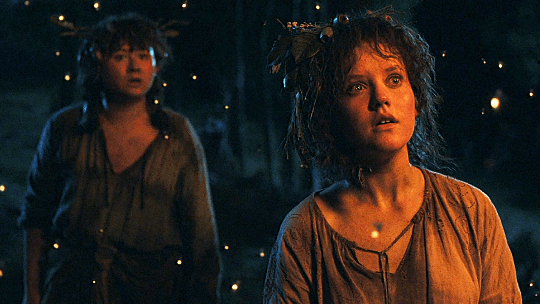
It's a trope that reinforces the idea of the indigenous conquered people with being 'closer to nature' (deployed most destructively in America and Australia) as compensation for colonisation. It's crap, it's always been crap, and we deserve better.
Tolkien was probably what I'd call 'an Anglo-Saxon nationalist', in that he was not simply 'a man of his time' with all that entails with the English - he went out of his way to create, and he felt restore, English mythology. That's the Lord of the Rings, a corpus of language and myth. The Hobbits I guess are his vision of what is most admirable in the English, a humble love of the land and simple pleasures.
There are also heroic warrior kings descended from angelic beings (Elves/Aragorn), so don't worry - the world conquering empire is catered to as well.
Portraying the Ur-hobbits as Irish is senseless, with the actors doing bad accents that can be traced back to a racist theatrical tradition, and somehow manages to miss whatever point Tolkien was trying to make with his invented English 'legendarium' that centres simple moral goodness as national traits.
I’m currently re-reading The Two Towers and I am enjoying it. Tolkien’s interests and biases are embedded in the text, a fascinating grist to the feeling it produces in the reader.
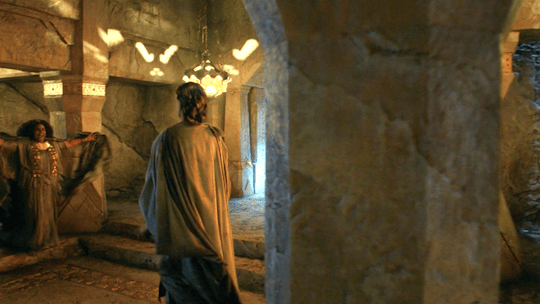
I agree that any adaptation should reflect the time it is produced in - and indeed Tolkien’s work itself did the same, with all that entails.
Cast ethnically diverse actors, absolutely - the strangest fantasy in Fantasy fiction is how white it is! It’s the product of history written by the victors designed to exclude the experiences of peoples who were colonised or vilified by empire.
If you really want Irish accents, cast Irish performers - of every ethnicity once again (we’re a small island, but we’re not Little England).
And don’t even get me started on the depiction of unions on Rings of Power, jaysis!
- Emmet O’Cuana
1 note
·
View note